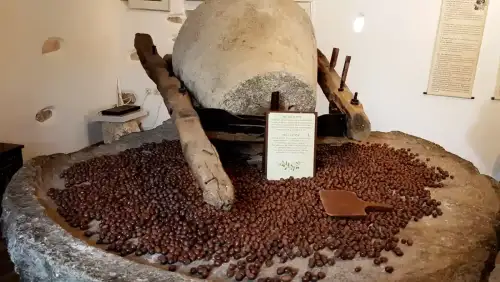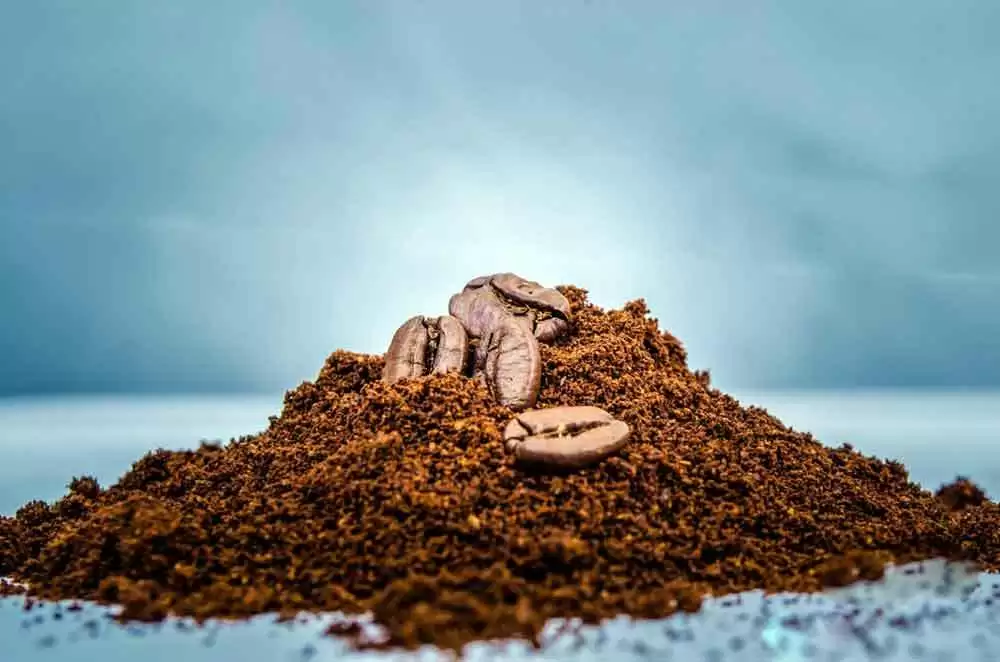Celiac.com 01/24/2025 - Olive farming has been around for millennia, with olives playing a central role in the diets and economies of many Mediterranean regions. However, while the production of olive oil is highly valued, the process leaves behind a significant amount of waste, known as pomace. Until recently, this waste has been a major environmental issue. PhenOlives, an Israeli startup, has developed a groundbreaking way to repurpose olive pomace into a valuable product: gluten-free flour. This innovation represents a major step forward in sustainability, benefiting both the environment and the food industry.
The Problem with Olive Pomace
After olives are pressed for oil, about 85% of the fruit remains as pomace. This byproduct is not only useless but also problematic. Within minutes of extraction, the pomace begins to oxidize, losing its nutritional value and becoming toxic. It cannot be used for human or animal consumption, nor can it be repurposed as fertilizer due to its acidic nature. Historically, olive farmers have had few options for disposing of pomace, and it often ends up in landfills or is burned, contributing to pollution and waste.
Celiac.com Sponsor (A12):
This has been a challenge for olive oil producers for centuries, despite olives being one of the oldest known crops, dating back to biblical times. Despite advancements in olive cultivation and oil extraction, finding a viable use for pomace has been elusive—until now.
PhenOlives' Revolutionary Approach
PhenOlives has introduced a game-changing solution that turns olive waste into gluten-free flour, offering a win-win scenario for olive farmers and mill owners. The key to their success is a patented process that prevents the pomace from oxidizing. The startup has developed a machine that separates the pomace into three components: pulp, black water (wastewater from pressing), and seeds. From the pulp, they produce a high-fiber, low-calorie flour that can be used in a variety of gluten-free foods.
The process is completely natural and doesn't involve any chemicals or additives. By incorporating it into the existing olive milling process, PhenOlives has made it easy for mill owners to transform their waste into a commercially viable product. Instead of discarding the pomace, they can now use it to produce a gluten-free ingredient that is suitable for bread, pasta, crackers, and more.
The Potential of Olive Flour
The first product from PhenOlives is olive flour, which holds great promise in the gluten-free food market. Olive flour is rich in fiber and contains the same health benefits as olive oil, making it an attractive ingredient for health-conscious consumers. While it doesn't have the elasticity and water retention properties necessary for baking bread on its own, it can be combined with other flours to create a wide range of products. For example, olive flour can be used as a 100% base for crackers, at 50% for pasta and pizza crust, and at 30% for cookies and brownies.
Aside from its gluten-free properties, olive flour offers several health benefits due to its high content of antioxidants, vitamins, and healthy fats. It's a nutritious option that adds value to the growing demand for gluten-free alternatives.
Beyond Flour: Other Uses for Olive Pomace
PhenOlives isn't stopping at gluten-free flour. The company is researching other potential uses for olive pomace, such as food additives, colorings, and even pet food. They're also exploring how the black olive water and seeds can be repurposed. The seeds, for example, could be used in non-food industries, such as energy production, further maximizing the potential of olive waste.
This holistic approach to utilizing the entire 85% of waste material from olive oil production sets PhenOlives apart from other companies. Instead of focusing on just one aspect of the byproduct, they're tackling the entire waste issue, providing a sustainable solution for olive mills.
A Promising Future for Sustainable Agriculture
PhenOlives has received significant support for its innovative work. The company has already secured $760,000 in grants from the Israel Innovation Authority and is currently raising funds to expand its operations into Europe. With plans to install its systems in European olive mills and begin commercial sales of olive flour, the future looks bright for this eco-friendly startup.
Olive mill owners in countries like Spain, Greece, Italy, and Portugal—some of the largest olive producers in the world—are excited about the potential of this technology. PhenOlives' solution not only helps reduce waste but also creates new revenue streams for farmers and millers. This is a significant breakthrough for an industry that has long struggled with managing its byproducts.
A Delicious and Sustainable Solution
PhenOlives' olive flour is an exciting addition to the gluten-free market, offering a nutritious, environmentally friendly alternative to traditional flours. By repurposing olive pomace, the company is solving a long-standing problem in olive oil production while contributing to sustainable agriculture. With its innovative technology and commitment to sustainability, PhenOlives is poised to make a significant impact on both the food industry and the environment.
In the end, what PhenOlives has done is nothing short of remarkable. They’ve taken a toxic byproduct and turned it into a gluten-free ingredient that could soon become a staple in kitchens around the world. It’s a win for olive farmers, millers, food manufacturers, and most importantly, the planet.
Read more at: israel21c.org and phenolives.com.














Recommended Comments
There are no comments to display.
Create an account or sign in to comment
You need to be a member in order to leave a comment
Create an account
Sign up for a new account in our community. It's easy!
Register a new accountSign in
Already have an account? Sign in here.
Sign In Now